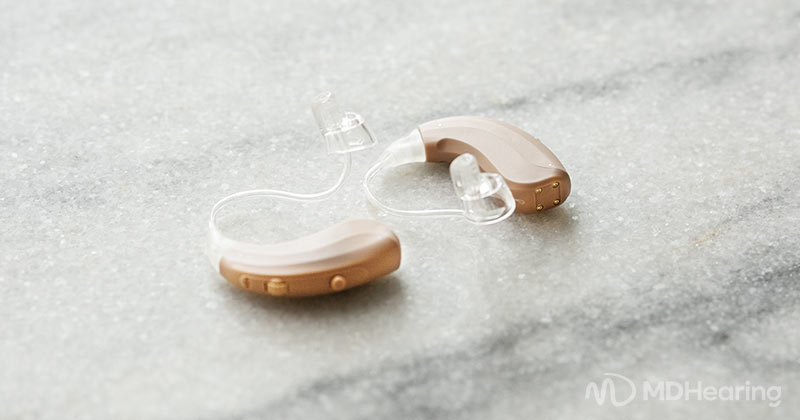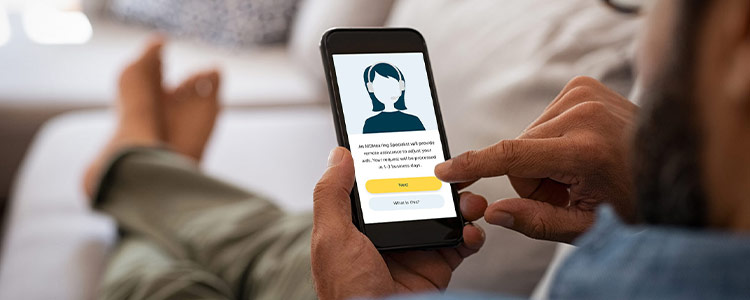The FDA issued a landmark ruling on Over-the-Counter (OTC) hearing aids in August 2022. An important part of the ruling was the issuance of clear guidelines on how to be FDA-compliant for OTC devices. Now, hearing aid manufacturers can sell their devices over the counter in traditional retail outlets and drugstores—without an exam, prescription, or special fitting from an audiologist.
This FDA ruling on OTC hearing aids is a game-changing step forward for the entire hearing aid industry—particularly when it comes to the challenge of making hearing aids more affordable to consumers. It empowers manufacturers to dramatically reduce the costs of hearing aids by selling FDA-registered hearing aids directly to consumers.
But why is the FDA’s ruling on OTC hearing aids important? What was the timeline of events that made OTC hearing aids possible? And, how can affordable, OTC hearing aids offer similar quality?
In this article, we explore the most positive aspects of this truly exciting development for cost-conscious hearing loss patients!
What Are OTC Hearing Aids?
Over-the-Counter hearing aids are a newly-recognized category of hearing aids that consumers can purchase without visiting an audiologist or hearing care professional. Created for patients with perceived mild to moderate hearing loss, OTC hearing aids amplify and clarify specific frequencies of sounds so that users can hear and communicate better with friends and loved ones. OTC aids are medical devices, but they do not require patients to visit an audiologist for testing or professional adjustments.
To qualify as OTC hearing aids, FDA guidelines state that the devices must:
- Be safe and effective for patients who have perceived mild to moderate hearing loss.
- Adhere to FDA standards for package labels that provide warnings and other important information consumers need to understand about the devices. This allows the OTC aid customers to clearly understand what OTC hearing aids are, and who they can help.
Why Is the FDA Ruling on OTC Hearing Aids Important?
Before the FDA’s August 2022 ruling on OTC aids, hearing aid manufacturers could always sell hearing aids via the mail, the internet, or through a hearing clinic. However, most hearing loss patients did not know that there were options OTHER than a hearing clinic—where hearing aids cost an average of $4,600 per pair.
This resulted in many people feeling that they could not afford hearing aids. These patients let their hearing loss go untreated because they did not know that there were quality, affordable alternatives available on the internet. With the new regulatory guidelines, consumers are finding out that excellent and dramatically more affordable OTC hearing aids are available, and that those hearing aids adhere to FDA rules.
When the FDA ruled to create a new classification for Over-the-Counter (OTC) hearing aids, it was a pivotal moment in hearing aid history. For the first time ever, the FDA recognized that hearing aid patients can successfully treat their hearing loss with a new class of affordable OTC hearing aids.
Ultimately, the creation of the OTC category is likely to have disruptive effects across the entire hearing aid industry—particularly as it relates to giving consumers more direct access to affordable, FDA-registered hearing aids.
FDA Commissioner Robert M. Califf, M.D. made the following statement when issuing the historic OTC ruling:
Hearing loss is a critical public health issue that affects the ability of millions of Americans to effectively communicate in their daily social interactions… Establishing this new regulatory category [for OTC hearing aids] will allow people with perceived mild to moderate hearing loss to have convenient access to an array of safe, effective, and affordable hearing aids from their neighborhood store or online.”
Consumers have been able to purchase OTC hearing aids—including OTC aids from the MDHearing website—since October 2022.
A Timeline: Key Events That Made OTC Hearing Aids Possible
MDHearing and other affordable hearing aid manufacturers have wanted the FDA to create a new category for OTC hearing aids for over a decade. However, it wasn’t until 2017 that the most visible aspects of this process began.
Here are the most important steps that led to the FDA’s new OTC hearing aid category:
- From the beginning of the hearing aid industry, hearing aids have been expensive. Long considered a luxury item, hearing aids have been expensive until quality, affordable alternatives appeared on the market a little more than a decade ago. However, these affordable alternatives were unregulated by the FDA so there was no guarantee that they were high-quality hearing aids.
- In March 2017, Congress passed the bipartisan Over-the-Counter Hearing Aid Act of 2017. With the primary goal of making hearing aids more affordable and accessible, Congress passed bipartisan legislation called “The Over-the-Counter Hearing Aid Act” in 2017. The Act required the FDA to (1) create a new OTC hearing aid category, and (2) issue guidelines for OTC hearing aids.
- From 2017 to 2022, continual delays in moving forward with the OTC Act. Due to internal delays and pandemic-related delays, the FDA took a long time to follow the terms of the OTC Act.
- In July 2021, the White House ordered the FDA to create the OTC hearing aid category. Because the FDA still hadn’t created an OTC hearing aid category, the White House issued an Executive Order in mid-2021. This order required the FDA to create an OTC hearing aid category and publish guidelines by August 2022. The goal of the Executive Order was to make quality hearing care and hearing aids dramatically more affordable and accessible to consumers.
- On Aug. 17, 2022, the FDA released its ruling on OTC aids with guidelines: The FDA released its new guidelines for the OTC hearing aid category. Needless to say, August 2022 was an exciting month for MDHearing and the future of hearing aids.
How Can Over-the-Counter Hearing Aids Offer Similar Quality Hearing Loss Treatment as Professionally-Fit Hearing Aids?
The FDA’s new category of Over-the-Counter hearing aids certainly begs the question: How can affordable OTC hearing aids offer similar quality treatment as professionally-fit aids?
To answer this question, let’s look at how MDHearing uses (1) remote hearing care smart technology and (2) personalized telehealth services to achieve similar quality care as professionally-fit devices.
(1) Remote Hearing Care Smart Technology
MDHearing’s smart hearing aid models include a free smartphone app. This app connects your smartphone to your hearing aids to offer various telehealth features:
- App-based “Hearing Check” and customized sound profile: The “hearing check” feature measures your response to a series of tones. This allows the MDHearing App to create a unique “Personalization Profile” for your specific hearing needs. Finally, the hearing aid automatically programs itself according to your Personalization Profile.
- Remote adjustments: Our hearing professionals use the remote adjustment feature to fine-tune your hearing aids over the internet. To access this feature, users submit a request through the MDHearing App. A hearing specialist from MDHearing will then get in touch with you and remotely adjust your hearing settings according to your needs. Incredibly, you never have to leave your home to benefit from this feature.
- Custom adjustments based on a professional audiogram (hearing test): MDHearing customers can also provide their professional hearing test results to us. If needed, a hearing specialist can use your audiogram to remotely adjust your aids. These are professional-quality hearing aid adjustments done over the internet—without you leaving your home.
It’s important to note that patients do not need the MDHearing App to operate basic controls on their hearing aids. Each hearing aid includes controls for volume and cycling through program settings for different listening conditions.
(2) Personalized Telehealth Services and Highly Responsive Customer Service
The smart technology behind MDHearing is impressive, but the real stars of our company are our world-class, licensed hearing care professionals. These dedicated professionals allow us to provide clinic-level hearing care without the clinic. They provide our customers with unlimited access to the following:
- Phone and video conference support with our telehealth team, which includes more than a dozen licensed audiologists and hearing specialists—all based in the United States.
- A free online hearing test to determine if you are a good match for a set of hearing aids from MDHearing. Take our free 5-minute online hearing test here.
- Complimentary consultations with licensed hearing professionals who can guide you on hearing health.
How to Choose the Best OTC Hearing Aids
In the coming months, consumers are likely to see a lot of new OTC hearing aids for sale in local stores and on the internet. One way to ensure that you are selecting the best quality OTC hearing aids for your needs is to verify that the devices are FDA-registered hearing aids.
Even better, try to purchase a pair of OTC hearing aids that qualify for 510(k) status from the FDA. This means that they are “self-fitting hearing aids” that allow you to adjust them to your specific hearing aid needs. FDA 510(k) status ensures that the OTC hearing aids offer a similar quality of treatment as traditional hearing aids purchased from a hearing clinic.
MDHearing received FDA 510(k) approval for its smart hearing aids on Aug. 4, 2022. We qualified for 510(k) approval from the FDA by submitting clinical test results from Central Michigan University (CMU) that showed our self-fit hearing aids treat hearing loss with a similar level of quality as professionally-fit devices. Learn more about MDHearing’s 510(k) approval process and why it is important here.
Final Thoughts on MDHearing and the FDA’s OTC Hearing Aid Ruling
MDHearing’s products are registered as OTC hearing aids with the FDA, empowering MDHearing to reach a wider audience with its products. This will allow more individuals—regardless of their economic situation—to learn about and benefit from some of the most affordable and highest-quality hearing aids on the market.
Best of all, MDHearing achieves high-quality hearing care, affordability, and convenience without requiring any of the following:
- No professional hearing tests are required.
- No in-person hearing clinic visits are required.
- No custom ear molds are required.
- No need to spend thousands of dollars on hearing aids.
Starting at just $299.98 a pair, all MDHearing products feature a risk-free, 45-day trial period. If you decide that your hearing aids are not a good match for your needs, send them back to us within 45 days to receive a complete refund.
Want to learn more about our affordable, OTC hearing aids?
BROWSE HEARING AIDS

